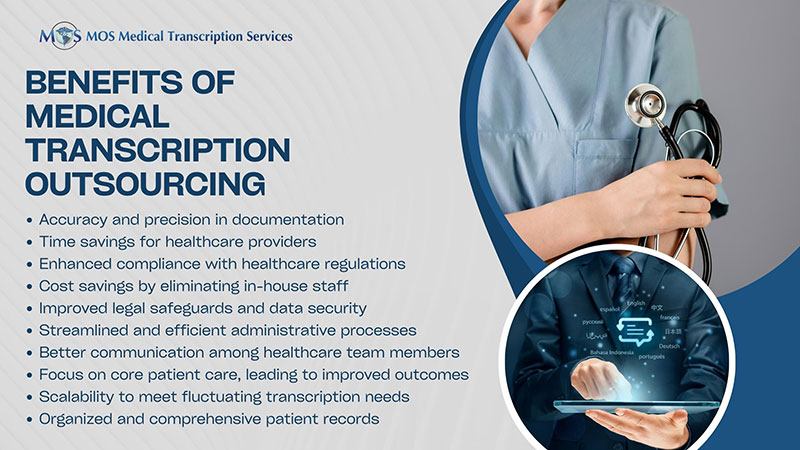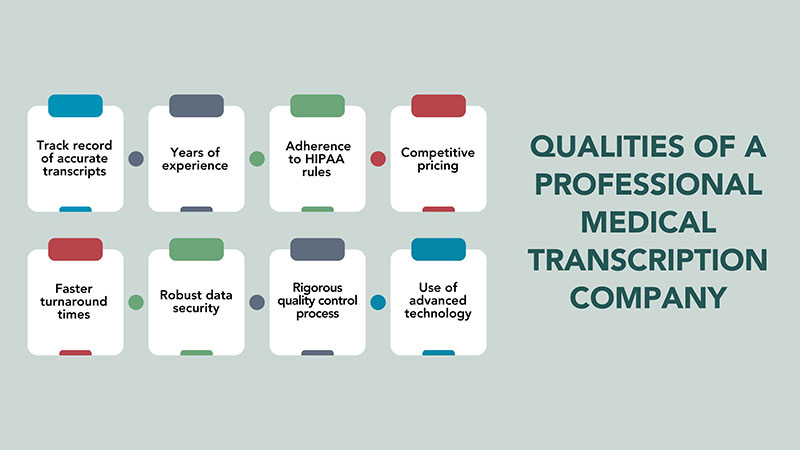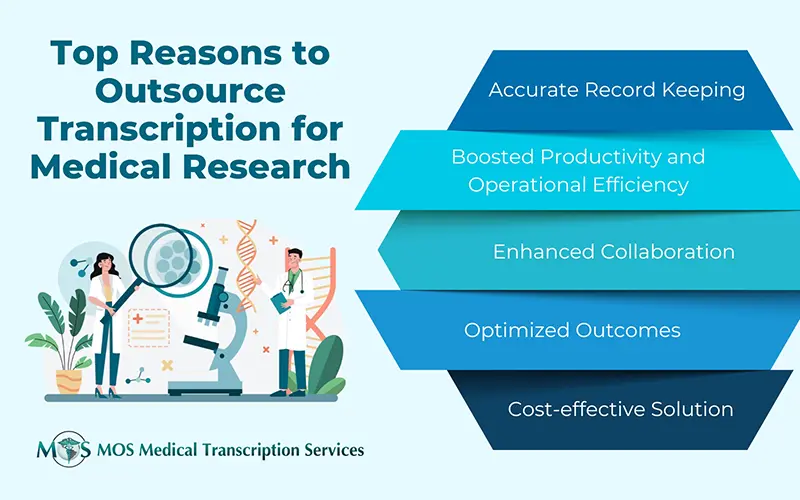
Table of Contents
Medical transcription continues to find use in the current EHR scenario with many providers using this service to prevent burnout. By entrusting the task of transcribing clinical notes and patient records to specialized professionals, you not only ensure the accuracy and precision of your medical documentation but also free up valuable time to focus on what you do best – delivering high-quality patient care.
Medical transcription outsourcing offers a strategic pathway to boost your practice’s profitability. The resulting efficiency gains can lead to increased patient throughput, improved patient satisfaction, and ultimately, higher practice revenue. Moreover, outsourcing medical transcription eliminates the need for in-house transcription staff, reducing operational costs and providing cost savings.

Role of Medical Transcription Outsourcing
- 1. Accuracy and Precision:
Accurate and precise medical documentation is the cornerstone of quality healthcare. Errors or omissions in patient records can lead to misdiagnoses, delayed treatments, and even legal disputes. Professional medical transcriptionists, who are highly skilled in the field, can transcribe clinical notes with meticulous attention to detail, ensuring that every critical piece of information is captured accurately. This precision minimizes the risk of billing errors and claim denials, leading to faster and more reliable reimbursement.
- 2. Time Savings for Healthcare Providers:
Healthcare providers, such as physicians and nurses, face the relentless challenge of time management. Spending excessive hours on documentation can lead to burnout, longer patient wait times, and decreased productivity. By outsourcing transcription, healthcare professionals can delegate this time-consuming task to experts, and gain time to concentrate on what they do best – providing high-quality patient care. The resultant increase in efficiency can lead to higher patient throughput, improved patient satisfaction, and, in the long run, higher practice revenue.
- 3. Enhanced Compliance and Legal Safeguards:
Maintaining compliance with healthcare regulations, such as HIPAA, is paramount in the healthcare industry. Privacy breaches and non-compliance can lead to hefty fines and legal consequences. Professional healthcare transcription services typically adhere to these stringent regulations, ensuring your practice remains in compliance. This added layer of legal safeguard helps prevent costly legal battles and potential financial losses associated with privacy breaches.
- 4. Cost Savings:
Hiring and maintaining in-house medical transcription staff can be expensive when considering salaries, benefits, and equipment costs. By outsourcing medical transcription, practices can save significantly by eliminating the need for dedicated in-house staff. Additionally, many transcription services work on a pay-as-you-go model, allowing practices to scale their transcription needs as required, reducing fixed costs and improving financial flexibility.
Also Read: Affordable Medical Transcription Service
- 5. Improved Communication and Collaboration:
Accurate and timely medical transcripts are essential for fostering better communication among healthcare team members. They can be effortlessly shared among specialists, nurses, and administrative staff, resulting in more coordinated care and improved patient outcomes. This collaborative approach can reduce errors, rework, and readmissions, all of which can significantly impact the financial health of a practice.

Choose an Expert Partner
Outsourcing medical transcription is a valuable strategy that can significantly impact your practice’s bottom line. Choosing the right medical transcription company is a critical decision for healthcare providers seeking accurate and efficient transcription services. It’s essential to consider several key factors when making this choice. Look for a company with a proven track record of accuracy, as precision in transcribing clinical notes is of utmost importance. Additionally, assess their commitment to compliance with healthcare regulations like HIPAA to ensure that patient data remains secure. Cost-effectiveness is another critical aspect, as outsourcing should lead to savings. The ability to scale services as needed and adapt to your practice’s unique requirements is also advantageous. Also, consider the company’s reputation for timely delivery, which can impact your overall workflow and patient care. Make an informed choice in selecting a provider because it will help enhance your practice’s efficiency, reduce operational costs, and ultimately contribute to improved patient care and financial success.


